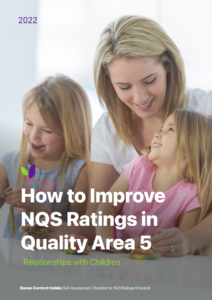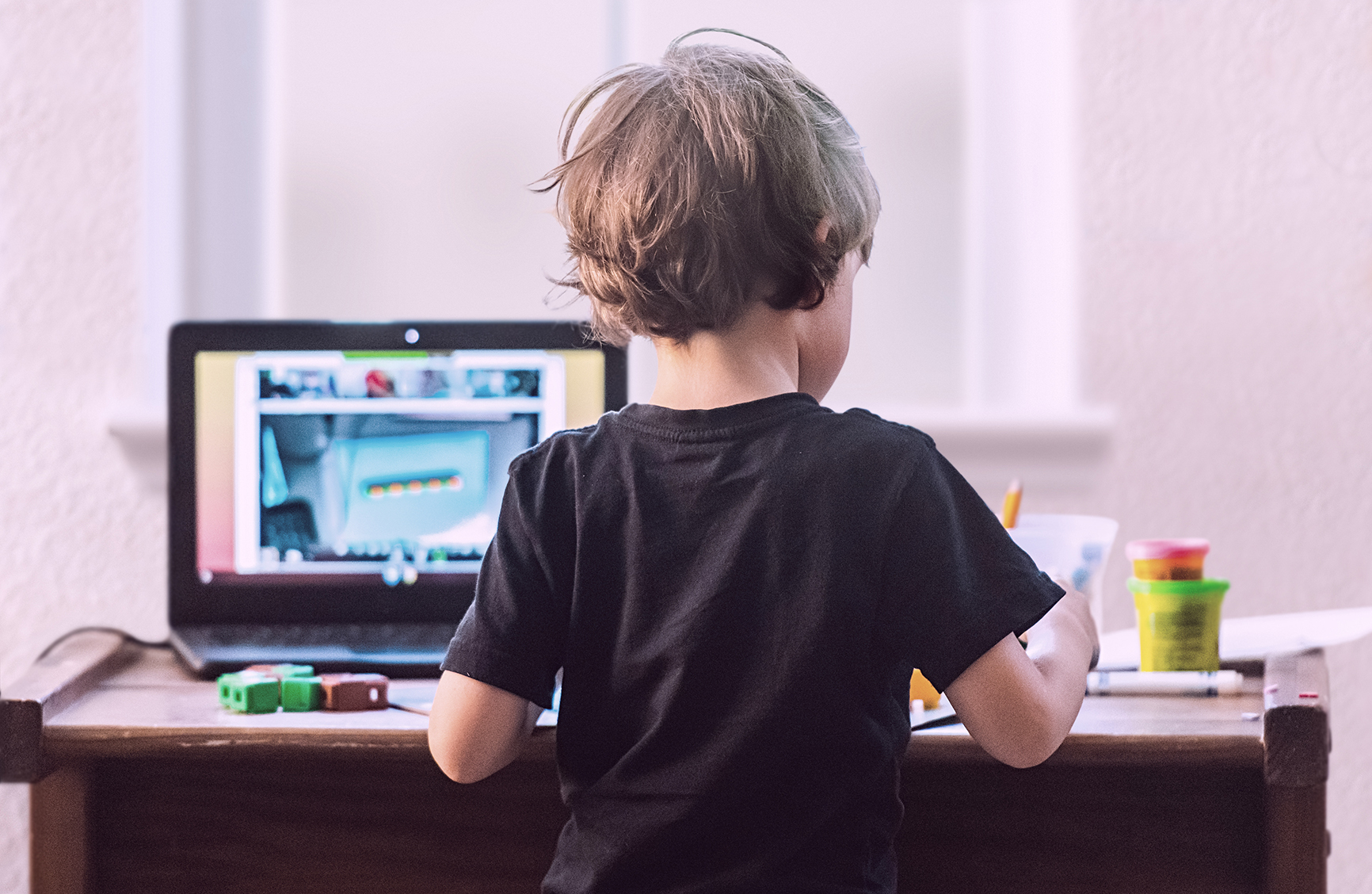Relationships with children: Quality Area 5
Quality Area 5 of the National Quality Standard focuses on the value of relationships with children that are responsive and respectful in nature. Respectful and meaningful relationships help a child to feel secure, confident and included. When a child is supported, their self-esteem gets a boost.
Respectful relationships encourage children to explore the environment and engage in play, resulting in positive learning outcomes. Good relationships ultimately empower children to connect with others, build positive friendships and resolve conflicts. These relationships support children to self-regulate their own behaviour and respond appropriately.
Relationships between educators and children
The goal of NQS Quality Area 5 is for children to develop a strong sense of belonging and well-being through nurturing and respectful relationships with their educators. Early childhood education services are responsible for developing and nurturing respectful and equitable relationships with children.
Staffing arrangements must be taken seriously by education and care services for young children. Children’s relationships early in life influence their identity and how they belong in particular groups. Educational leaders must always promote responsive and meaningful interactions with children.
Educators play a crucial role in ensuring services’ compliance with the national quality standard. They must take the lead in creating various constructive everyday interactions and shared learning opportunities with each child. By supporting children through nurturing relationships, educators help promote children’s sense of self-confidence and skills to manage their behaviour and relate positively to others.
Positive educator-to-child interactions
Through positive interactions and shared learning opportunities, educators can stimulate children’s thinking and enrich their learning through routines, play and ongoing projects.
Educators can use daily interactions to develop sensitive and responsive relationships with children. One simple and practical way to enable children to communicate effectively and respond appropriately is to actively engage with them through listening and responding to what they are saying. Children learn by example.
Build and maintain sensitive and responsive relationships with children. An educator can do so by being extra attentive to the children’s non-verbal cues, especially when immersed in a small group setting.
Creating a safe space for a child to share their thoughts and feelings is imperative in fostering a positive educator-to-child relationship. It allows them to feel accepted and safe. The child is supported when they feel that they have a voice in the group and can contribute to decisions.
More than just guiding children’s behaviour, educators who are developing responsive and meaningful interactions must also observe and note how children prefer to communicate. It’s one way of showing children their thoughts, opinions and preferences matter. Showing respect for a child’s feelings will encourage them to keep sharing them with you.

Dignity and rights of the child
The Early Childhood Australia (ECA) Code of Ethics encourages early childhood professionals to value, acknowledge and respond to all children’s rights to their identities, abilities, strengths and culture.
One of the guiding principles of the National Quality Framework (NQF) is that the rights and best interests of the child are paramount. Each child has a right to be heard, to be free from violence, abuse and neglect, to have the opportunity to thrive, to be engaged in civics and citizenship and opportunities, and to act and be accountable.
Providing education and care based on rights means understanding these rights and implementing practices that reflect them.
Relationships between children
Each child is supported to build and maintain sensitive and responsive relationships. Children will also need to manage their relationships with one another. Relationships between them and their peers will gradually become more complex as they grow.
Developing sensitive and responsive relationships is vital for them to set a base for learning how their choices affect themselves and others. Secure children have increased empathy, better relationships with parents and peers, and increased capacity to handle emotions more effectively.
Collaborative learning
Children are active learners, and they learn skills needed by watching, copying and practising or through trial and error. They develop skills through play more than any other activity. That’s why services should provide many opportunities for children to practice working together collaboratively and effectively, including through play activities.
Collaborative experiences help hone children’s behaviour. Through these, children learn about their responsibilities to others and appreciate their connectedness and interdependence as learners. Interaction with other children helps a child learn life and social skills, such as conflict resolution and negotiation skills.
Self-regulation
Self-regulation develops through interaction with caregivers and the broader environment. It is critical to support self-regulation at each stage of development. During their early childhood, children should start knowing how to manage thoughts and feelings to enable goal-directed actions.
In addition to becoming aware of their own interactions with others, children begin to understand how their actions affect others. Self-regulation includes cognitive, emotional and behavioural skills and processes that support children in coping with strong feelings, controlling impulses, learning and getting along with others.
Role modelling and supporting children to convey and construct messages with purpose and confidence can encourage young children to relate to others. Modelling positive ways to express needs, resolve conflict, or respond to their own behaviour and other people’s behaviour is an essential part of teaching young children.
Parents, educators, staff of afterschool care providers, extended family members and others support self-regulation development by using three strategies in a process called “co-regulation.”
Their strategies include:
- Building Warm, Responsive Relationships
- Structuring the Environment
- Coaching Self-regulation Skills
For more ways to build respectful and genuine relationships with children in your care, along with tips for improving your Quality Area 5 ratings, check out our free guide.
For more ways to build respectful and genuine relationships with children in your care, along with tips for improving your Quality Area 5 ratings, check out our free guide.
Bonus content in the guide: A handy self-assessment checklist to prepare your staff for the Assessment and Rating process.


by QikKids (Marketing Team Lead)
-
First published: 01 June 2022
Written by: Dean Comeau

